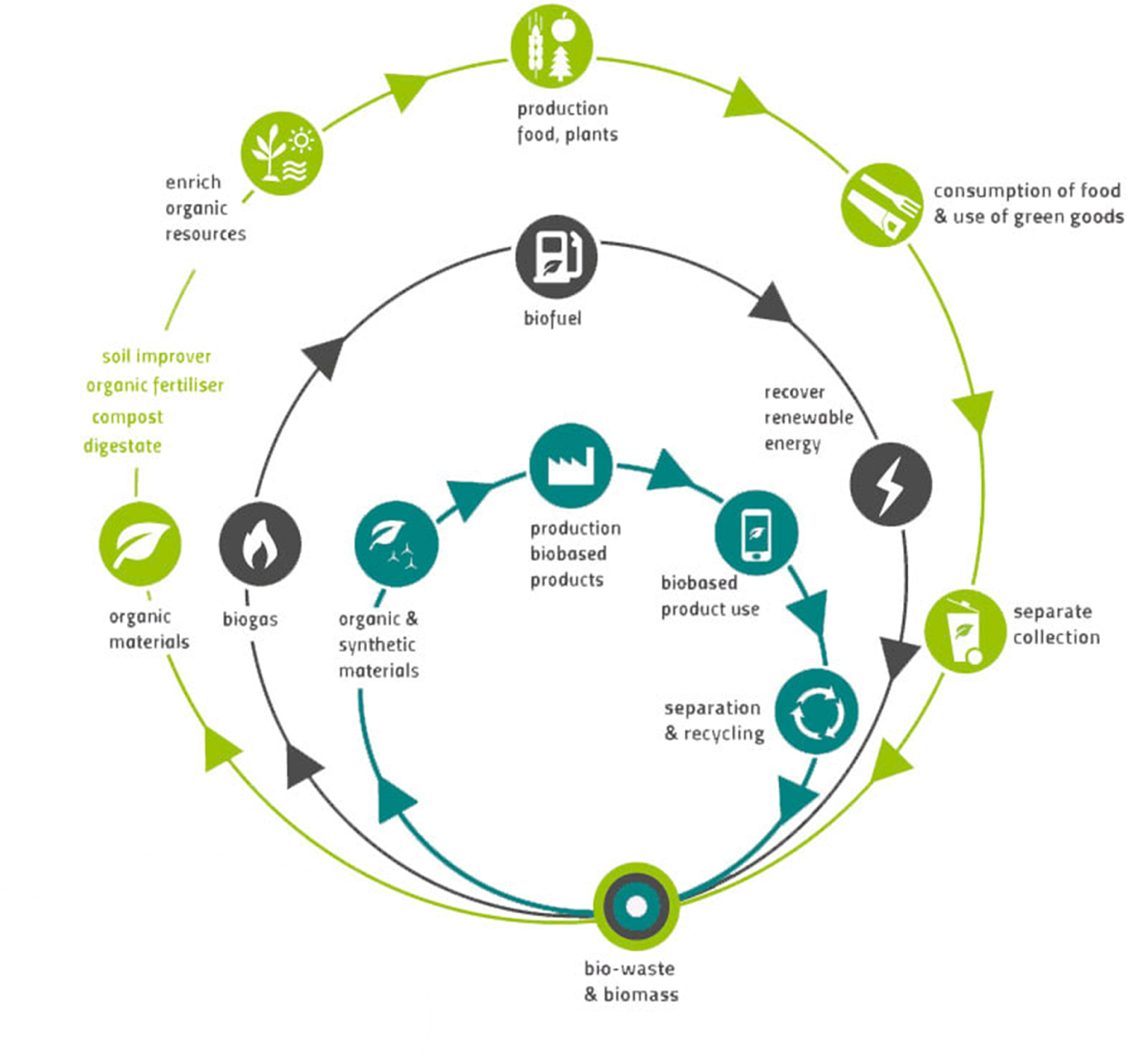
Anaerobic Digestion
Anaerobic Digestion is a microbial process in which organic matter, such as food waste, animal manure, and agricultural or food processing waste, is decomposed in an oxygen-free environment by anaerobic microorganisms.
Anaerobic digestion is a staged process.
- Hydrolysis: breakdown of complex insoluble organic matter into simple sugars & acids.
- Acidogenesis: further breakdown into alcohols & volatile fatty acids (VFAs).
- Acetogenesis: conversion of VFAs and alcohols into acetic acid.
- Methanogenesis: conversion into methane and CO2 by methanogenic bacteria.

Energy Independence
Anaerobic digestion is an integral tool in sustainable bio-waste management Anaerobic Digestion can recover energy from most organic wastes and effluents.
Adding an anaerobic digestion step to organic waste management brings the following benefits:
- Reduce greenhouse gas emissions (GHG) from decomposing organic matter.
- Production of renewable energy
- Production of organic fertilizers which replace energy intensive mineral fertilizers.
- Reap social and economic benefits from producing fertilizers and energy from waste waste.
Sustainable Food Production
A safe, nutritious, and affordable food supply is needed to sustain populations worldwide. Farmers work hard to meet the growing food demand and remain viable in today’s global marketplace. Efficiently using water and nutrients for crop and animal needs can cut costs, reduce environmental impacts, and contribute to a safer, more productive farm.
Manure digesters on livestock farms can:
- Protect animal and human health by reducing pathogens.
- Convert nutrients in manure into a form that is more accessible for plants to use compared to raw manure. This can increase crop productivity and yield.
- Recycle nutrients on the farm, creating an economically and environmentally sustainable food production system.
- Produce heat, electricity, or fuel from biogas which can be used on-farm, lessening the agriculture sector’s dependence on fossil fuel energy.
- Accept food waste from places like restaurants and grocery stores. This means less food waste is sent to landfills. Food waste has the added benefit of increasing the efficiency of farm digesters.
One Comment
Comments are closed.



Hi there, great website. Could you please give examples of some of your systems currently in operation? Thank you!